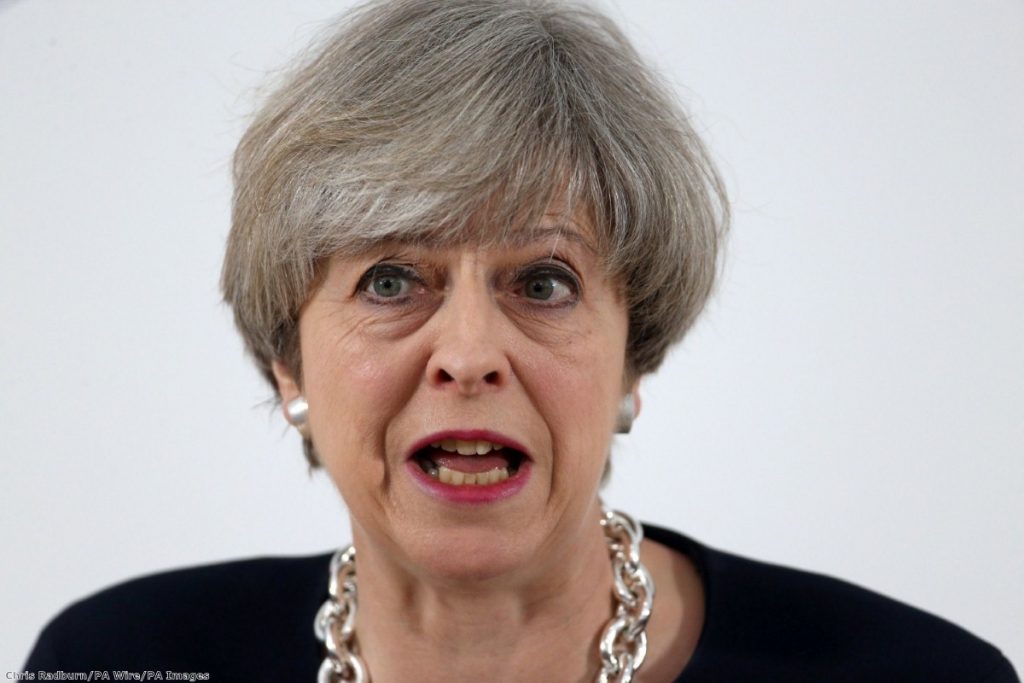By Chris Key
In recent weeks, Conservative Home editor Mark Wallace has written several fascinating pieces about the Tories' disastrous general election campaign.
It is a particularly compelling read based on interviews with "scores" of activists, MPs and party officials and not just reporting what the hacks say. The pieces identify a number of root causes for the Tories losing their majority, including a tightly controlled and poorly thought through manifesto, a rusty party machine and a weak grassroots organisation which was often micro-managed by CCHQ.
What stands out about Wallace's articles is how uncannily similar the Conservatives' errors on the election mimic their errors on Brexit. The arrogance, centralised control and lack of imagination can scupper their European project as readily as it scuppered their hopes of an expanded majority.


The first similarity is plain hubris. May called the election on the back of strong polling results which at one point put the Tories some 20 points ahead of Labour. In the end the Tory popular vote was just two percent ahead of Labour's and they lost 13 seats against a leader thought to be completely unelectable even by Labour MPs. Tory activists in seats where they had sitting MPs were told not to campaign in their own seats but to go to Labour seats previously considered unwinnable. In the end, they did not even manage to win seats like Brentford & Isleworth, where Ruth Cadbury's Labour majority went from less than 1,000 to over 12,000.
A similar level of arrogance has been on display when you consider how ministers said Brexit negotiations would be going by now. In July 2016, David Davis said talks with the EU would begin on September 9th 2016. He expected the negotiation phase "of most of them" to be concluded within 12 and 24 months. "So, within two years, before the negotiation with the EU is likely to be complete, and therefore before anything material has changed, we can negotiate a free trade area massively larger than the EU," he wrote. Not quite so, it seems, given we have not even reached agreement over EU citizens, Northern Ireland and the divorce bill, and trade talks are nowhere near being started.

The phrase "less haste, more speed" could be applied equally to May's decision to call a general election and her mad rush to trigger Article 50. Manifesto decisions such as the cataclysmic policy which became dubbed the 'dementia tax' were not communicated even to members of the Cabinet until the last minute, allowing no time for proper scrutiny and challenge. Canvassing for Vince Cable in Twickenham, I met life-long Tories who switched to the Lib Dems or Labour because of this policy alone. There was, of course, no need to call the general election, but the positive polling proved to be just too tempting. The same is true when it came to triggering Article 50. It was done even before the government had the faintest idea of what they wanted to get out of the negotiations.
Wallace's pieces also highlight the pitiful lack of readiness by the Conservatives for the election campaign. He describes a number of examples, including an inability to change key CCHQ literature once Theresa May was being shown up as being wooden and weak and rushed selections due to swathes of target seats not having candidates in place.
This lack of preparedness has also been plain to see when it comes to Brexit negotiations. It was over 12 months after the referendum before the government decided to commission a study into the role that EU nationals play in the UK economy. That study isn't due to be published until September 2018, a mere six months before we are due to leave the EU.
This is incredible, given immigration was front and centre of the leave campaign. Even Brexiters have to acknowledge how complicated it will be to design an appropriate post-Brexit immigration framework for EU citizens, as well as IT systems to implement the new regulations. The government rushed out a series of position papers in August, on issues like EU citizens and the approach to customs with the EU, in the same way students rush out essays to get them in before the deadline. These position papers were poorly thought out and in some cases completely unworkable, such as the idea to have no hard border between Northern Ireland and the Republic despite the UK leaving the customs union.
The government regularly talks about the need to respect the wishes of the people in ensuring Brexit is delivered and criticises Labour and the Lib Dems for trying to thwart that will. Yet listening to what people want is not a mantra followed by the Tories' own party machine. Wallace was highly critical of the way the selection of party candidates was handled during the election. His pieces tell of shortlists being imposed on local parties.
The similarity between the handling of the botched election and the botched Brexit talks are troubling. The same people are bringing the same mix of inadequacies to these different projects, with what can only be expected to be the same results: humiliation and failure.
Chris Key is an active member of the Liberal Democrats, and campaigner on issues related to mental health. He joined the party in 2015.
The opinions in politics.co.uk's Comment and Analysis section are those of the author and are no reflection of the views of the website or its owners.












